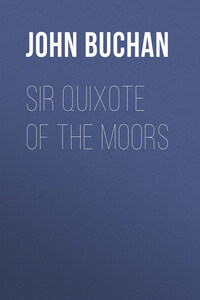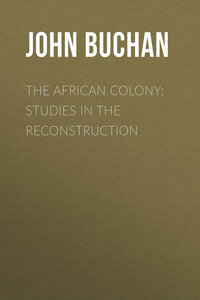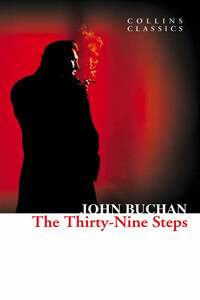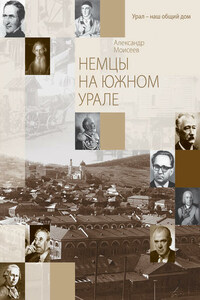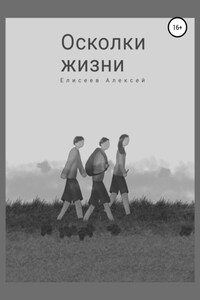CHAPTER I.
ON THE HIGH MOORS
Before me stretched a black heath, over which the mist blew in gusts, and through whose midst the road crept like an adder. Great storm-marked hills flanked me on either side, and since I set out I had seen their harsh outline against a thick sky, until I longed for flat ground to rest my sight upon. The way was damp, and the soft mountain gravel sank under my horse's feet; and ever and anon my legs were splashed by the water from some pool which the rain had left. Shrill mountain birds flew around, and sent their cries through the cold air. Sometimes the fog would lift for a moment from the face of the land and show me a hilltop or the leaden glimmer of a loch, but nothing more – no green field or homestead; only a barren and accursed desert.
Neither horse nor man was in any spirit. My back ached, and I shivered in my sodden garments, while my eyes were dim from gazing on flying clouds. The poor beast stumbled often, for he had traveled far on little fodder, and a hill-road was a new thing in his experience. Saladin I called him – for I had fancied that there was something Turkish about his black face, with the heavy turban-like band above his forehead – in my old fortunate days when I bought him. He was a fine horse of the Normandy breed, and had carried me on many a wild journey, though on none so forlorn as this.
But to speak of myself. I am Jean de Rohaine, at your service; Sieur de Rohaine in the province of Touraine – a gentleman, I trust, though one in a sorry plight. And how I came to be in the wild highlands of the place called Galloway, in the bare kingdom of Scotland, I must haste to tell. In the old days, when I had lived as became my rank in my native land, I had met a Scot, – one Kennedy by name, – a great man in his own country, with whom I struck up an intimate friendship. He and I were as brothers, and he swore that if I came to visit him in his own home he would see to it that I should have the best. I thanked him at the time for his bidding, but thought little more of it.
Now, by ill fortune, the time came when, what with gaming and pleasuring, I was a beggared man, and I bethought me of the Scot's offer. I had liked the man well, and I considered how it would be no ill thing to abide in that country till I should find some means of bettering my affairs. So I took ship and came to the town of Ayr, from which 'twas but a day's ride to the house of my friend. 'Twas in midsummer when I landed, and the place looked not so bare as I had feared, as I rode along between green meadows to my destination. There I found Quentin Kennedy, somewhat grown old and more full in flesh than I remembered him in the past. He had been a tall, black-avised man when I first knew him; now he was grizzled, – whether from hard living or the harshness of northern weather I know not, – and heavier than a man of action is wont to be. He greeted me most hospitably, putting his house at my bidding, and swearing that I should abide and keep him company and go no more back to the South.
So for near a month I stayed there, and such a time of riot and hilarity I scarce remember. Mon Dieu, but the feasting and the sporting would have rejoiced the hearts of my comrades of the Rue Margot! I had already learned much of the Scots tongue at the college in Paris, where every second man hails from this land, and now I was soon perfect in it, speaking it all but as well as my host. 'Tis a gift I have, for I well remember how, when I consorted for some months in the low countries with an Italian of Milan, I picked up a fair knowledge of his speech. So now I found myself in the midst of men of spirit, and a rare life we led. The gentlemen of the place would come much about the house, and I promise you 'twas not seldom we saw the morning in as we sat at wine. There was, too, the greatest sport at coursing and hunting the deer in Kennedy's lands by the Water of Doon.
Yet there was that I liked not among the fellows who came thither, nay, even in my friend himself. We have a proverb in France that the devil when he spoils a German in the making turns him into a Scot, and for certain there was much boorishness among them, which to my mind sits ill on gentlemen. They would jest at one another till I thought that in a twinkling swords would be out, and lo! I soon found that 'twas but done for sport, and with no evil intent. They were clownish in their understanding, little recking of the feelings of a man of honor, but quick to grow fierce on some tittle of provocation which another would scarce notice. Indeed, 'tis my belief that one of this nation is best in his youth, for Kennedy, whom I well remembered as a man of courage and breeding, had grown grosser and more sottish with his years, till I was fain to ask where was my friend of the past.
